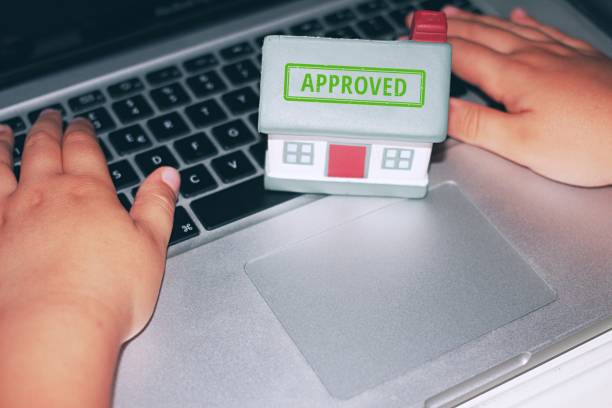Navigating Home Loans as a Self-Employed Borrower. Being self-employed comes with many perks. Freedom, flexibility, and the thrill of carving your own path.
But when it comes to home loans, it’s a different ball game. The process can be a bit more complex for the self-employed.
Why? Lenders often see self-employed borrowers as a higher risk. This is due to their income often being less predictable than those with a regular paycheck.
But don’t fret. This guide is here to help you navigate the home loan process as a self-employed borrower.
We’ll cover everything from preparing your financial profile to shopping for the best mortgage rates. We’ll also delve into the unique loan options available to you.
So, whether you’re an independent contractor, freelancer, or business owner, this guide is for you. Let’s dive in and demystify the process of securing a home loan as a self-employed borrower.
The Self-Employed Borrower’s Challenge
The home loan process can be a bit of a maze for anyone. But for self-employed borrowers, it can feel like a labyrinth.
Why is this so? Well, it boils down to how lenders assess risk. They prefer borrowers with a steady, predictable income. This is often not the case for the self-employed.
As a self-employed borrower, your income may fluctuate. It might even be seasonal. This can make lenders nervous. They may see you as a higher risk borrower.
Here are some challenges you might face as a self-employed borrower:
- Proving your income: You’ll need to provide more documentation than a traditionally employed borrower.
- Higher interest rates: Due to perceived risk, lenders may charge you a higher interest rate.
- Larger down payments: Some lenders may require a larger down payment to offset the risk.
- More scrutiny: Lenders may dig deeper into your finances, including your business expenses and tax returns.
But don’t let these challenges deter you. With the right preparation and knowledge, you can navigate these hurdles with ease.
Preparing Your Financial Profile
Before you start the home loan process, you need to get your financial ducks in a row. This means organizing your financial documents and understanding your tax returns.
Your financial profile is like a snapshot of your financial health. It tells lenders how much you earn, how much you owe, and how you manage your money.
Here’s what you need to prepare:
- Proof of income: This can include tax returns, profit and loss statements, and bank statements.
- Credit report: Lenders will check your credit history to see how you’ve managed past debts.
- Debt-to-income ratio: This is the percentage of your income that goes towards paying debts.
- Savings: Lenders like to see a healthy savings account. It shows that you can handle unexpected expenses.
Organizing Financial Documents
When it comes to home loans, paperwork is king. You’ll need to provide a lot of documents to prove your income and financial stability.
This can include tax returns, bank statements, and profit and loss statements. It’s a good idea to start gathering these documents early. The more organized you are, the smoother the process will be.
Understanding Tax Returns and Income Verification
Your tax returns are a key piece of the puzzle. They show lenders how much you earn and how stable your income is.
But here’s the catch. As a self-employed borrower, you might use tax deductions to lower your taxable income. While this is great for your tax bill, it can make it harder to qualify for a home loan.
You might need to strike a balance. Maximize your tax deductions, but also show enough income to qualify for a loan. It’s a tricky balancing act, but with careful planning, you can make it work.
Credit Scores and Down Payments: Your Leverage Points
When it comes to home loans, your credit score and down payment are your best friends. They can make or break your loan application.
Your credit score tells lenders how reliable you are. A high score means you’re a low-risk borrower. A low score? Not so much.
Your down payment, on the other hand, is your skin in the game. It’s your investment in the property. The more you put down, the less risk for the lender.
Here’s what you need to know:
- A high credit score can get you a lower interest rate.
- A large down payment can increase your chances of approval.
- Both can give you more negotiating power when shopping for a loan.
Building a Strong Credit History
Your credit history is like your financial report card. It shows lenders how well you’ve managed your debts in the past.
To build a strong credit history, pay your bills on time. Keep your credit card balances low. And avoid taking on too much debt at once.
The Impact of Your Down Payment
Your down payment is a big deal. It’s the amount of money you put down on the property upfront.
The larger your down payment, the less you have to borrow. This can make you a more attractive borrower to lenders. Plus, it can lower your monthly mortgage payments. Win-win!
Loan Options for the Self-Employed
As a self-employed borrower, you have a few loan options to consider. Each has its pros and cons.
Traditional lenders, like banks, may offer lower interest rates. But they often have stricter requirements. Non-traditional lenders, like online lenders, may be more flexible. But their rates can be higher.
Government-backed loans can be a great option. They often have lower down payment requirements and more lenient credit standards.
Here’s a quick rundown:
- Traditional lenders: Lower rates, stricter requirements
- Non-traditional lenders: More flexibility, potentially higher rates
- Government-backed loans: Lower down payment requirements, more lenient credit standards
Traditional vs. Non-Traditional Lenders
Traditional lenders are banks and credit unions. They’re often seen as more reliable. But they can be tough on self-employed borrowers.
Non-traditional lenders, like online lenders, can be more flexible. They may accept alternative forms of income proof. But be sure to check their rates and terms.
Government-Backed Loans and Their Advantages
Government-backed loans are another option. These include FHA, VA, and USDA loans.
They often have lower down payment requirements. And they’re more lenient with credit scores. This can be a big help for self-employed borrowers.
Shopping for the Best Mortgage Rates and Terms
When it comes to home loans, shopping around is key. Don’t just settle for the first offer you get.
Different lenders offer different rates and terms. And a small difference in interest rate can mean big savings over the life of your loan.
So take your time. Compare offers from several lenders. And make sure you understand all the terms before you sign.
Comparing Lenders and Mortgage Brokers
Lenders and mortgage brokers are not the same. Lenders are the ones who actually give you the loan.
Mortgage brokers, on the other hand, help you find a loan. They work with multiple lenders and can help you compare offers. But they also charge a fee for their services. So weigh the pros and cons before deciding.
Closing the Deal: Final Steps and Considerations
You’ve found the right loan. Now it’s time to close the deal. But don’t rush this part.
Closing a home loan involves a lot of paperwork. Make sure you understand everything before you sign.
Understanding Closing Costs and Loan Terms
Closing costs are fees you pay at the end of the home buying process. They can add up, so be prepared.
Also, make sure you understand the terms of your loan. This includes your interest rate, monthly payment, and any penalties for early payment. It’s all in the fine print, so read carefully.
Patience and Persistence Pay Off
Navigating home loans as a self-employed borrower can be tough. But with patience and persistence, it’s doable.
Remember, every lender is different. If one says no, don’t give up. Keep trying until you find the right fit. Your dream home is worth it. Contact us today.


